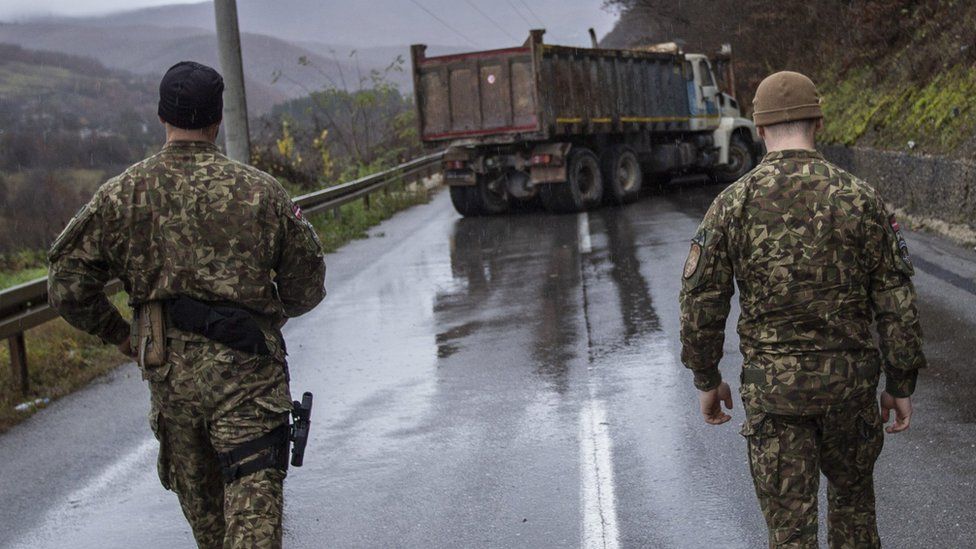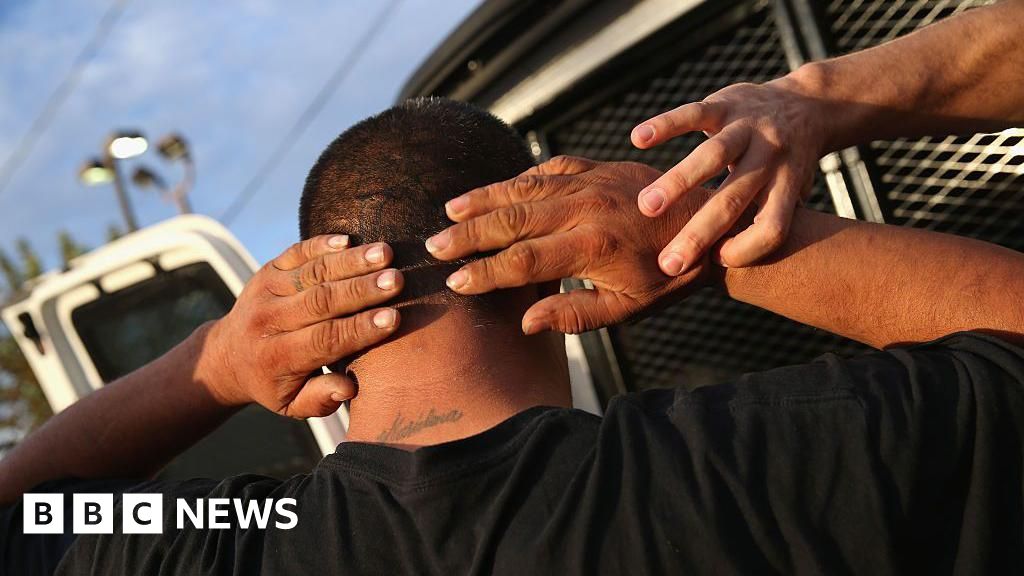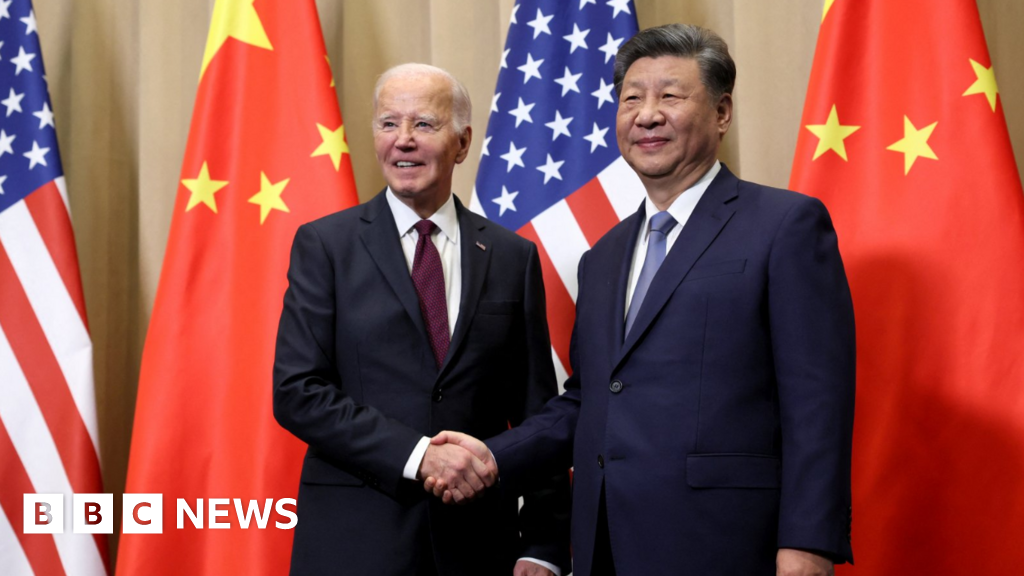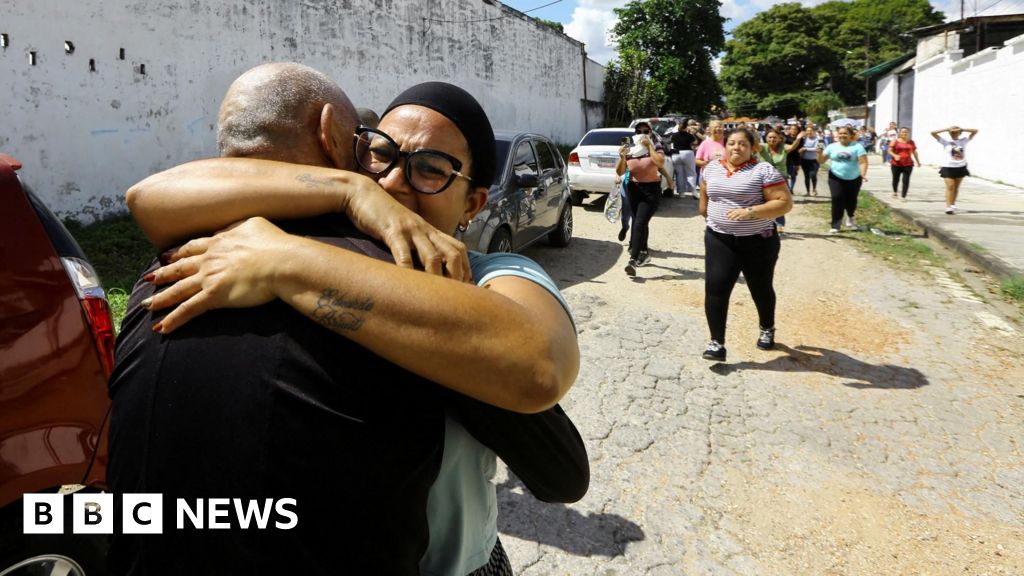ARTICLE AD BOX
 Image source, Getty Images
Image source, Getty Images
Nato-led Latvian soldiers in Kosovo inspect a truck blocking the way to the border with Serbia
By Elsa Maishman and James Gregory
BBC News
Serb protesters in northern Kosovo blocked roads for a second day on Sunday following an exchange of fire with police.
Trucks and other heavy-duty vehicles blocked several main roads leading to two border crossings with Serbia.
Longstanding tensions between authorities and Kosovo's Serb minority have been rising in recent weeks.
The latest protests were triggered by the arrest of a former Serb police officer on Saturday.
Prime Minister Albin Kurti described the protesters as "criminal gangs" and asked the Nato-led peacekeeping Kosovo Force (KFOR) to remove the barricades.
The EU called for peace to be restored, saying a stun grenade hit one of its armoured vehicles patrolling northern Kosovo on Saturday evening.
Kosovo police said they came under fire in different locations close to a lake bordering Serbia late on Saturday, with officers returning fire in self-defence.
It comes after Kosovo deployed police to majority-Serb areas - which do not recognise the Kosovo government in the capital Pristina - at the end of last week. This heightened tensions further, after they were already raised for months over a row about vehicle license plates.
Serbia has said the use of police violates previous peace agreements. President Aleksandar Vucic said he planned to ask Nato peacekeepers for permission to send Serbian police and troops to the area, though acknowledged there was little chance of this being granted.
Kosovo declared independence in 2008, following a bloody year-long war a decade earlier. Serbia does not recognise it as a sovereign state, however does accept the governing authority under an agreement brokered in 2013 to normalise relations.
Of the 1.8 million people living in Kosovo, 92% are Albanian and just 6% are Serbian.
The police officer arrested on Saturday was one of some 600 ethnic Serbs who resigned from the force in November in protest after authorities in Kosovo said they would require Serbs to swap Serbian licence plates dating to before the 1998-99 war for Kosovan ones.
Some 50,000 people in majority-Serb areas have so far refused to use Kosovo number plates because they do not recognise its independence from Serbia.
A deal brokered by the EU at the end of November saw an uneasy agreement reached between the two sides, with Kosovo dropping plans to fine people who did not swap the plates, and Serbia agreeing to stop issuing registrations with the initials of towns in Kosovo.

 1 year ago
20
1 year ago
20








 English (US)
English (US)